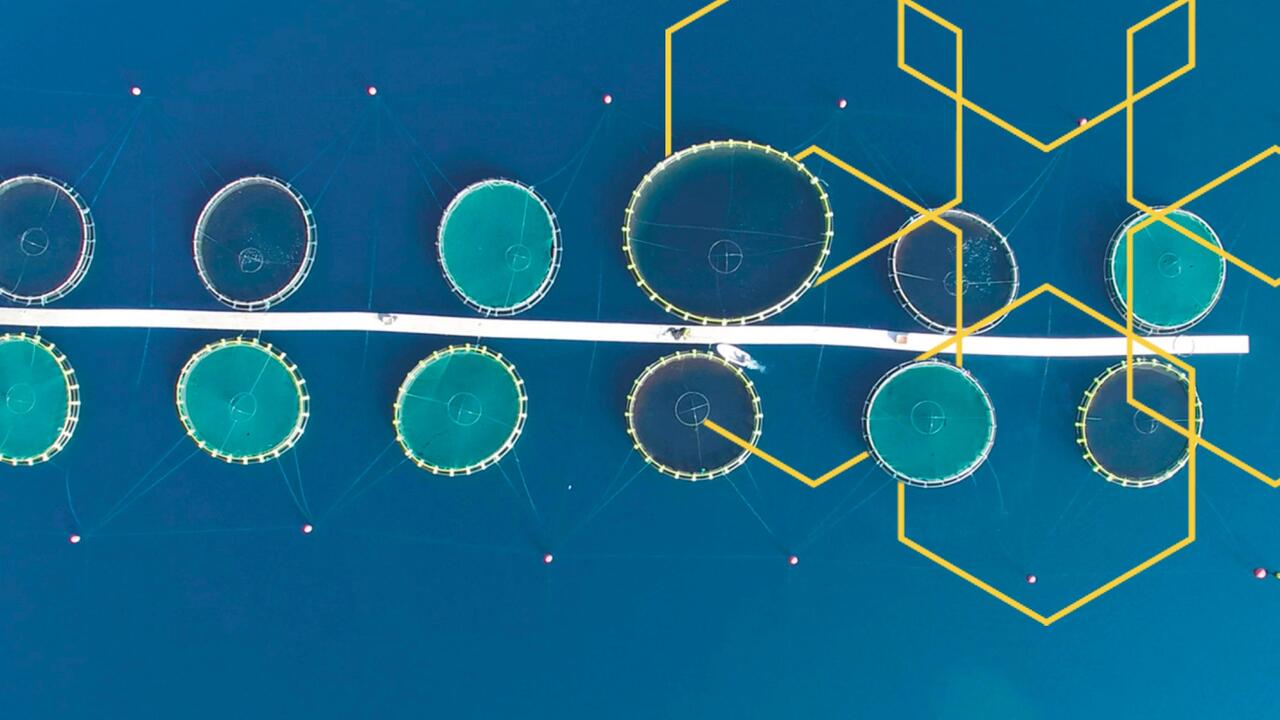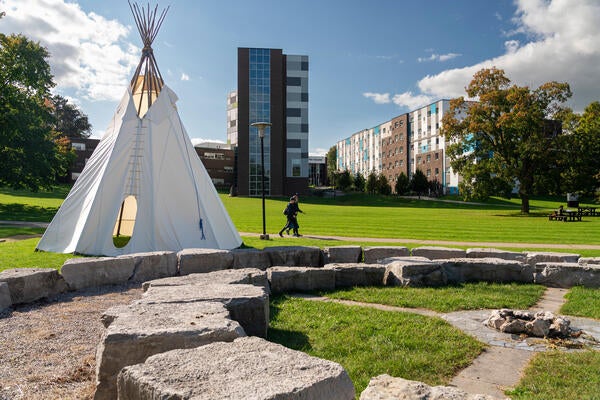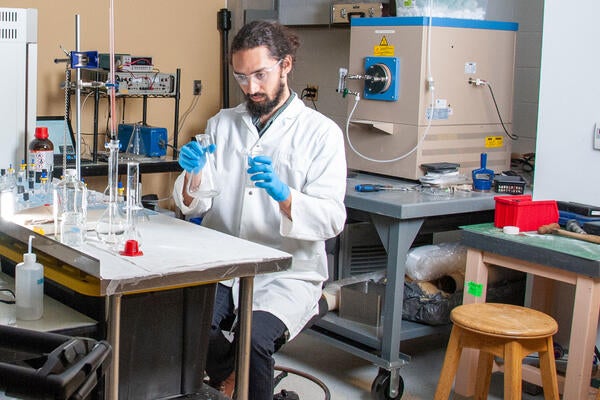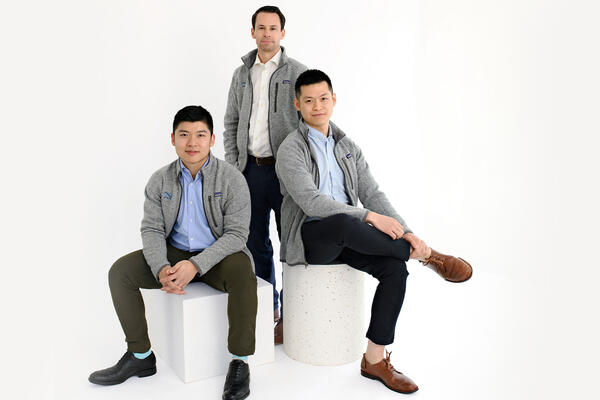
Creating a new vision for sustainable agriculture
Innovators at Waterloo’s Velocity incubator aim to farm crops on top of the ocean

Innovators at Waterloo’s Velocity incubator aim to farm crops on top of the ocean
By Etta Di Leo University Relations > (L) Rory Hornby, co-founder and CSO, Agrisea
> (L) Rory Hornby, co-founder and CSO, Agrisea
> (R) Luke Young, co-founder and CEO, Agrisea
On a flight to Norway, Luke Young noticed an oil tanker floating in the Atlantic. Although he knew the vessel was huge, it was dwarfed by the vastness of ocean. Young had been grappling with ways to sustainably and environmentally eradicate hunger. He immediately wondered about the ocean’s potential for growing food.
Working with his friend and Durham University classmate, Rory Hornby, the two started Agrisea, a company developing opportunities to grow food crops in salt water. While the company got their start at IndieBio, a life science accelerator in Silicon Valley, they ultimately chose Waterloo and Velocity to take their startup to the next level.
The Agrisea founders were looking for lasting impact in the world by tackling hunger, which is listed as one of the key United Nations Sustainable Development Goals. With their experience in genetics and biology, Young and Hornby knew they could make a scientific contribution.
“A real problem is that agriculture is based off of two standard requirements — freshwater and fertile land,” says Young. “But when you look at hydroponics and aeroponics, they both use minimal water and no fertile land at all. What could you use to help plants grow with less land and less water?”
The pair began to examine the genetics of plants that grew in salt water. They found a subset of genes that allowed plants to manage salt as an advantage rather than a stress. They soon discovered those same genes exist in our conventional crops, including wheat, corn and rice.
IndieBio gave Agrisea their start with $250,000 in seed funding and lab space for their initial sprint. “Being scientists, we didn’t have that business background,” says Hornby. “They teach you how to be a founder and build the company. But then we had to think about the long term strategy.”
During their time at IndieBio, they met other founders, including Shane Kilpatrick (MSc ’17, MBET ’18) who had started his company, Membio at Velocity. He encouraged the pair to consider Velocity to take Agrisea to its next phase of development.
“We had a couple of interviews with Velocity. We loved the team and the space,” says Young. “We could see that Velocity could provide an amazing space to grow and establish the long-term vision of our company. It has honestly been an amazing experience and transformative for Agrisea’s future.”
Young and Hornby landed in Waterloo in March 2020 and immediately found everything shut down because of COVID-19. The Velocity team helped them gain access to labs as quickly as possible so they could continue their research and development work.
"The biggest benefit has been the access to the lab space,” says Hornby. “We effectively get rent-free access to office space and lab space that would have cost us tens of thousands of dollars. That has made a massive difference because we could really look at the best practices for the company without the pressure to just crank something out as quickly as possible. It meant we could do things the right way. It gave us peace of mind that we could invest in our long term research and development goals.”
Young and Hornby have also benefitted from working with Velocity advisors who provide expertise and advice on how to manage different aspects of the business. Young credits the program for connecting them with the resources and networks they need.
"Growing within the Waterloo ecosystem has given Agrisea a launch pad to a variety of opportunities, including being a member of Velocity, access to co-op students and the global partner network.”
Now startups like Agrisea are inspiring the next generation of scientists, like Waterloo co-op student Alex Morrison (BASc 23).
"Working in a startup space, especially at Agrisea, is incredibly motivating,” says Morrison. “I love applying my skills to real world problems and tackling challenges and projects that can really make a difference. The environment makes me look forward to coming into work.
Agrisea is already working on getting salt-water agriculture projects started in Singapore and land rehabilitations projects in Vietnam. As the company moves forward, the team has their sights set on building environmentally sustainable and accessible ocean farms to feed the world.
Get updates on the latest research and innovation at the University of Waterloo. From breakthroughs in quantum technology and cybersecurity to leading-edge climate research and innovations in health care, you’ll get to know some of Waterloo’s most inspiring minds.

Read more
United College celebrates one-year anniversary of Indigenous entrepreneurship program that has awarded $20,000 in funding to support three ventures

Read more
From fossil fuels to future fuels, Aqua-Cell Energy's saltwater battery sets the stage for sustainable energy storage

Read more
Nanotech startup raises $6.5 million USD seed funding to produce its novel coating for biodegradable materials at scale
The University of Waterloo acknowledges that much of our work takes place on the traditional territory of the Neutral, Anishinaabeg and Haudenosaunee peoples. Our main campus is situated on the Haldimand Tract, the land granted to the Six Nations that includes six miles on each side of the Grand River. Our active work toward reconciliation takes place across our campuses through research, learning, teaching, and community building, and is co-ordinated within the Office of Indigenous Relations.